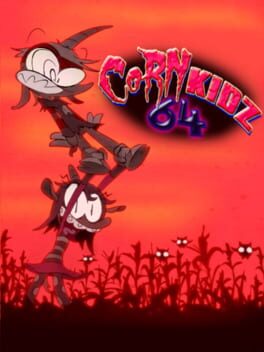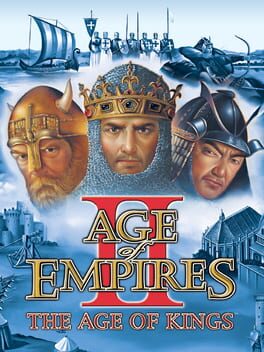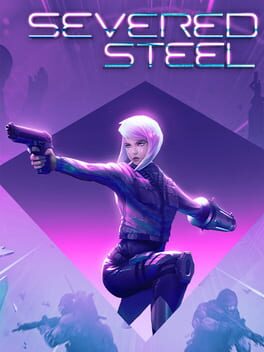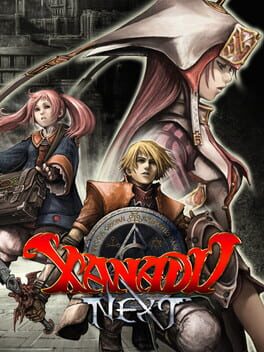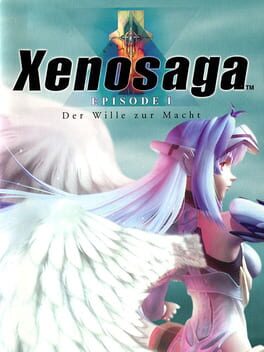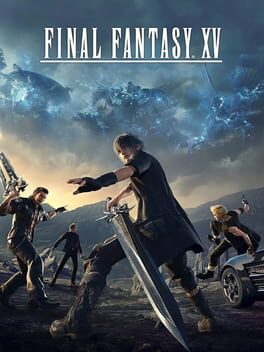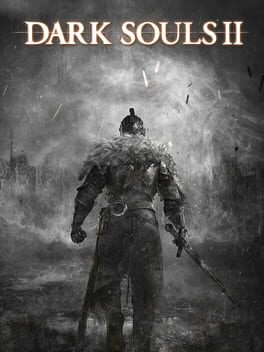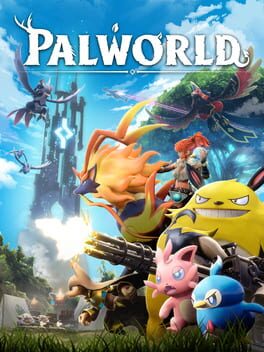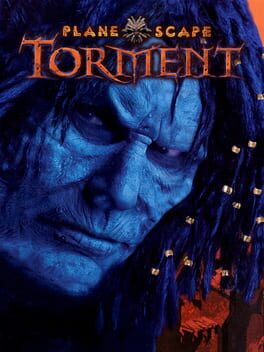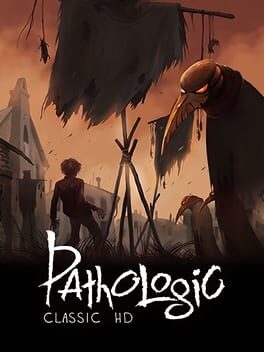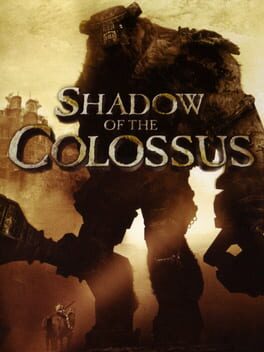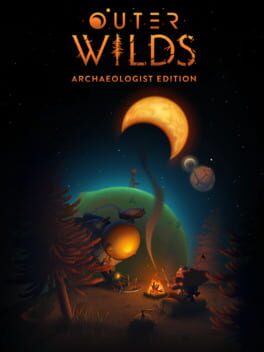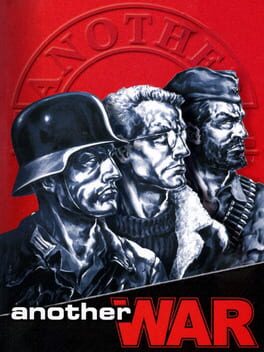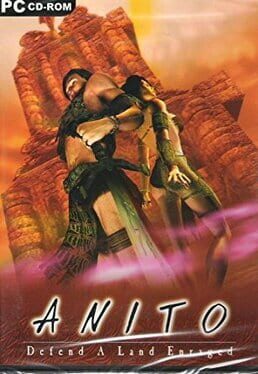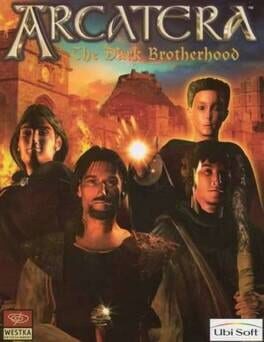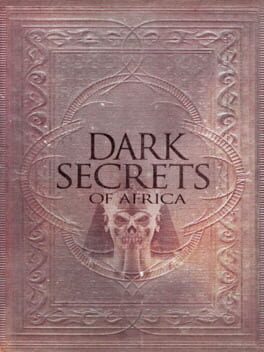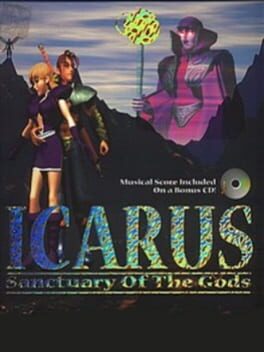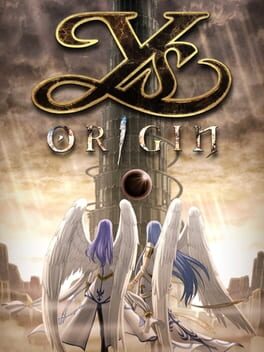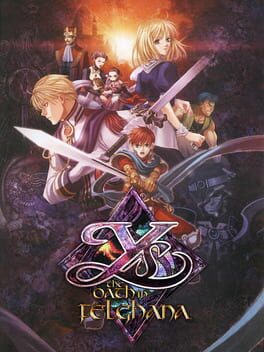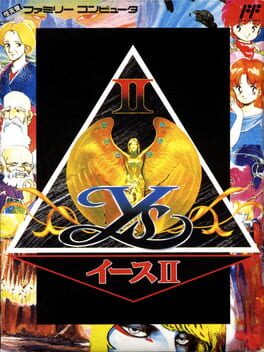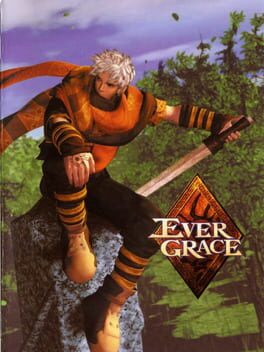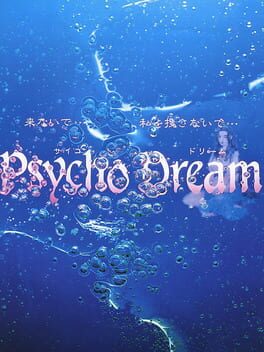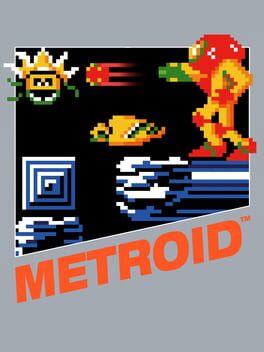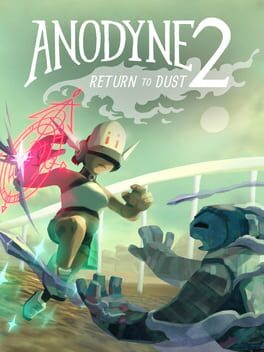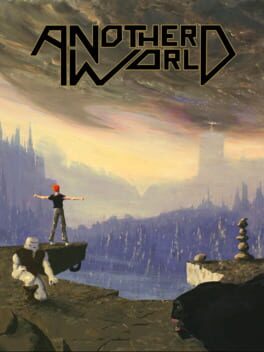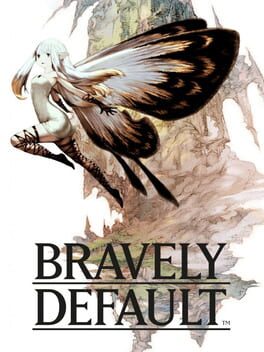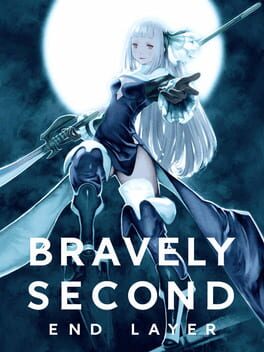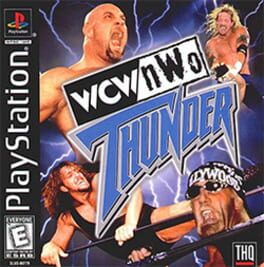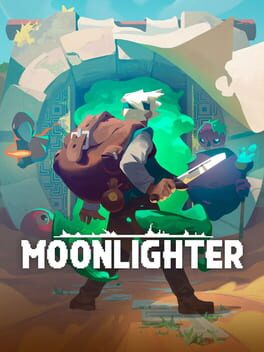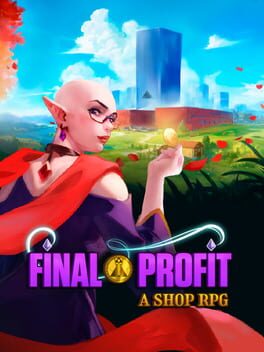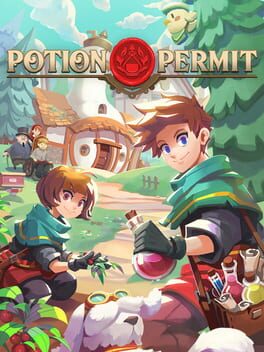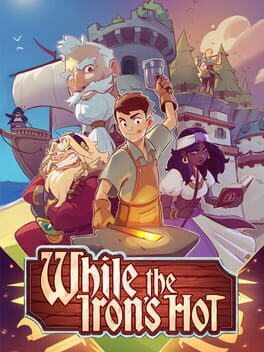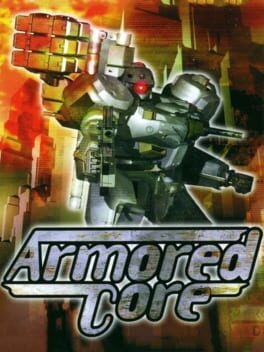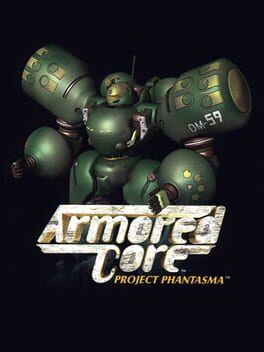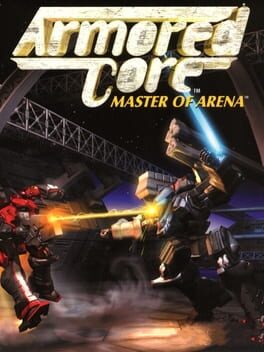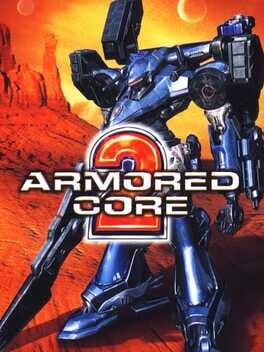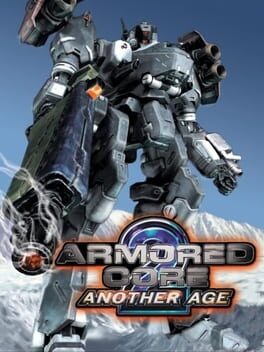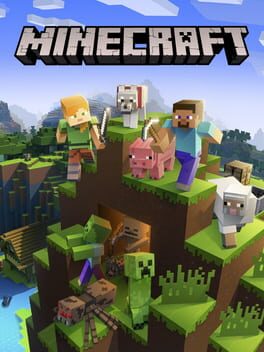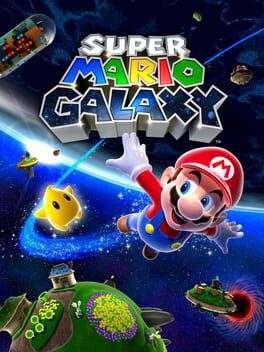635 reviews liked by zn0
Baldur's Gate 3
2020
I have put off re-reviewing this for months. Partly because I dont have the words to express the hold this game has over me, and partly because every time I start thinking about it I get too excited. I havent felt this way about something in a long time, likely since I was a girl in the height of my infatuation with Ace Attorney.
This game is just absolutely astounding, from all angles. There is nothing it does poorly and nothing I would change. I didnt really understand the draw of roleplaying till now, which was the downfall of my first experience, but it is absolutely incredible the things you can learn about yourself pretending to be someone else. Thats not something I can say about any other game, ever. And I can only feel just so grateful, because it's given me so much joy over the past 3 months. Its barely left my mind at all, which feels like an issue at times. I dont know if I'll have an experience like that ever again, after all I created the perfect character and ran through the campaign as him, twice. More or less doing the same thing because I just enjoyed what I had made so much. It grieves me that I kind of have to let go of it, its one of those games that was painful to finish because I just got so attached. It feels like mine, and its one of those autistic things where I cant stand it when anyone else brings it up cause you and I definitley dont see it the way, like a dog hyperaggressive over its food. Specifically dark urge, which feels like it was tailor made for me. Its all so special and I care about it very, very much.
Everyone who worked on bg3 is immensely talented. It's kind of staggering just how talented everyone is. There is not a single voice actor that preformed poorly or out of place, the text is immaculate, nearly every single decision one could make is neatly planned for and has a script. It is just perfect and I could marvel at it forever, cause it really is a feat of human accomplishment to me. The driving force behind my love for this game though is of course the cast. I adore absolutely everyone (minus you Minthara I will always kill you and take your clothes), there are so few games that manage to pull it off, that take you through a journey so long and so profound that you feel a sense of family. Withers' after party is the perfect amalgamation of all this, the joy I felt seeing everyone happy, finally grtting to live their lives was unmatched. Going through the letters of the people you met along the way and seeing that theyre all alright. Astarion specifically holds special meaning to me but I cant talk about that I get too protective. It never fails to make me tear up thinking about it and always makes me feel so grateful that this is in the world and that I got to experience it.
Immensely love all my friends and Scratch and Owlbear and that one weird ox I didnt get to see in act 3 because it glitched out. I will think about you all forever, an autistic girl's promise
This game is just absolutely astounding, from all angles. There is nothing it does poorly and nothing I would change. I didnt really understand the draw of roleplaying till now, which was the downfall of my first experience, but it is absolutely incredible the things you can learn about yourself pretending to be someone else. Thats not something I can say about any other game, ever. And I can only feel just so grateful, because it's given me so much joy over the past 3 months. Its barely left my mind at all, which feels like an issue at times. I dont know if I'll have an experience like that ever again, after all I created the perfect character and ran through the campaign as him, twice. More or less doing the same thing because I just enjoyed what I had made so much. It grieves me that I kind of have to let go of it, its one of those games that was painful to finish because I just got so attached. It feels like mine, and its one of those autistic things where I cant stand it when anyone else brings it up cause you and I definitley dont see it the way, like a dog hyperaggressive over its food. Specifically dark urge, which feels like it was tailor made for me. Its all so special and I care about it very, very much.
Everyone who worked on bg3 is immensely talented. It's kind of staggering just how talented everyone is. There is not a single voice actor that preformed poorly or out of place, the text is immaculate, nearly every single decision one could make is neatly planned for and has a script. It is just perfect and I could marvel at it forever, cause it really is a feat of human accomplishment to me. The driving force behind my love for this game though is of course the cast. I adore absolutely everyone (minus you Minthara I will always kill you and take your clothes), there are so few games that manage to pull it off, that take you through a journey so long and so profound that you feel a sense of family. Withers' after party is the perfect amalgamation of all this, the joy I felt seeing everyone happy, finally grtting to live their lives was unmatched. Going through the letters of the people you met along the way and seeing that theyre all alright. Astarion specifically holds special meaning to me but I cant talk about that I get too protective. It never fails to make me tear up thinking about it and always makes me feel so grateful that this is in the world and that I got to experience it.
Immensely love all my friends and Scratch and Owlbear and that one weird ox I didnt get to see in act 3 because it glitched out. I will think about you all forever, an autistic girl's promise
Corn Kidz 64
2023
It's like if Banjo-Tooie's level structure was actually good and sane. Does the thing that game does where a level is like one big puzzle with multiple smaller ones to solve within it, but its not designed maliciously. Appreciate the way it really doesn't play like what has been standardized as the "good 3d platformer moveset", but still feels really good to nail. Has fall damage because its not cowardly. In general it feels like what Rare was going for with its harder platformer moments like Rusty Bucket Bay or all of Conker's Bad Fur Day but just not nearly as mean, but mean enough to be satisfying to beat. I think a lot of 3D platformer people have turned on Rare's n64 platformers for several reasons, but games like this show that there's still plenty of right lessons to take from those games besides "have a joke about balls" or "have more collectibles than God"
One of my favorite units in any RTS are the AoE2 Teutonic Knights, which like many things in this have been historically modified for the sake of gameplay.
The real Teutonic Knights were a bunch of catholic dudes on horseback, while in this game they fight on foot and walk very slowly towards their opponents with their swords at their sides and beat the shit out of cavalry, trebuchets, and entire castles with nothing but that same sword. They're little tin can armor fellas in capes with stats equivalent to Mammoth Tanks from Command & Conquer, except they'd probably solo Kirov Airships too if you gave them jetpacks. Hell, could you imagine what would happen if you gave them a skateboard or a set of rollerblades? It's nightmarish imagining such a scenario, every archer would piss their pants at the sight of these guys sliding at them downhill with their swords pointed towards them.
Simplicity is sometimes the most endearing thing.
This had to have been my dad's favorite game ever at least on the ol' piece of shit Gateway PC. He was always a sucker for medieval warfare, and honestly I ain't exactly straying from the same path of interests he had, at least in this instance. It was an all too common occurrence to constantly hear the "under attack" alert ring out through the apartment. It was only slightly less funnier than the Empire Earth alert that was some pompous bastard bellowing "WE'RE UNDER ATTACK" even when an unthreatening bronze age slinger was bouncing stones off a space age chicken walker.
Between playing this, Balatro, and Picross I can't help but feel like I'm slowly turning into a hodgepodge of both my dad and my grandma. ;-;
The real Teutonic Knights were a bunch of catholic dudes on horseback, while in this game they fight on foot and walk very slowly towards their opponents with their swords at their sides and beat the shit out of cavalry, trebuchets, and entire castles with nothing but that same sword. They're little tin can armor fellas in capes with stats equivalent to Mammoth Tanks from Command & Conquer, except they'd probably solo Kirov Airships too if you gave them jetpacks. Hell, could you imagine what would happen if you gave them a skateboard or a set of rollerblades? It's nightmarish imagining such a scenario, every archer would piss their pants at the sight of these guys sliding at them downhill with their swords pointed towards them.
Simplicity is sometimes the most endearing thing.
This had to have been my dad's favorite game ever at least on the ol' piece of shit Gateway PC. He was always a sucker for medieval warfare, and honestly I ain't exactly straying from the same path of interests he had, at least in this instance. It was an all too common occurrence to constantly hear the "under attack" alert ring out through the apartment. It was only slightly less funnier than the Empire Earth alert that was some pompous bastard bellowing "WE'RE UNDER ATTACK" even when an unthreatening bronze age slinger was bouncing stones off a space age chicken walker.
Between playing this, Balatro, and Picross I can't help but feel like I'm slowly turning into a hodgepodge of both my dad and my grandma. ;-;
Severed Steel
2021
There's not a ton of complexity as to how Severed Steel operates and some elements need fine-tuning, but I can't help but appreciate how much the game accomplishes with surprisingly little. I'm a fan of the simple and effective UI; your aiming reticle is surrounded by two bars that convey how much ammo and slo-mo time is left (so these gauges are always near the center of attention) and the flashing light on your gun also changes color (from light neon colors to yellow to red) so you're constantly keyed in on when you'll need to pick up a gun early or engage/disengage when running low on supplies. Enemies stand out from the environment thanks to the cel-shaded enemy outlines, and upon death emit a distinct explosion sound-effect so there's no ambiguity when quickly rifling through targets during firefights or when picking off enemies from afar. Guns feel great to aim and fire in slow-mo, mainly because there's very noticeable recoil when firing in real-time; the contrast really helps sell the necessity of the feature. I also love Severed Steel's kick as both a form of attack and traversal; the obvious purpose is your primary melee attack while holding a gun if you don't want to expend your limited magazine to finish off an enemy as well as kicking open doors, but it can also be used to quickly ascend up walls or kick off of grounded/aerial enemies if your double jump isn't enough. The same goes for the arm cannon; you can fire holes into any surface if you don't feel like hunting down stairs/doorways for objectives, but it also provides a nice desperation option to instantly eliminate shielded enemies or drop heavy grunts down to another floor if you find yourself without a weapon.
Despite the appealing core gameplay, Severed Steel can often feel a bit repetitive. Enemy variety feels lacking since the player is usually approaching enemies in a similar manner (that is, entering slo-mo while using stunts to efficiently dispatch foes while firing into their heads/backsides), and I would have liked to see enemies that had to be specifically eliminated using the arm cannon or melee as mix-ups. The Rogue Steel mode does touch upon this with random enemy buffs that force such approaches, but at times I feel like this mode prefers to lengthen combat by overwhelming the player with excess enemies with more health. I do think the game could have also leaned a bit more into its parkour elements with additional stages that focused upon traversal and dodging/quickly disposing of enemies, as there were only a couple of timed story missions that necessitated a rush to the end. Finally, I have to agree with HotPocketHPE that the slo-mo gauge is unbalanced; you'll practically never run out of bullet time as long as you're staying in stunt mode (super easy since there are floors and walls aplenty to slide and wallrun), though this is again addressed from playing Rogue Steel via the "Rebalanced Bullet-Time" unlockable modifier. Even with these gripes however, Severed Steel is a pretty easy recommendation considering how content-rich the game is from its many different modes and extra campaign/workshop levels to tinker with. It was an absolute steal at 80% off on the Steam Spring Sale, and I can't wait to see how Greylock Studio iterates and improves upon their already fantastic formula.
Despite the appealing core gameplay, Severed Steel can often feel a bit repetitive. Enemy variety feels lacking since the player is usually approaching enemies in a similar manner (that is, entering slo-mo while using stunts to efficiently dispatch foes while firing into their heads/backsides), and I would have liked to see enemies that had to be specifically eliminated using the arm cannon or melee as mix-ups. The Rogue Steel mode does touch upon this with random enemy buffs that force such approaches, but at times I feel like this mode prefers to lengthen combat by overwhelming the player with excess enemies with more health. I do think the game could have also leaned a bit more into its parkour elements with additional stages that focused upon traversal and dodging/quickly disposing of enemies, as there were only a couple of timed story missions that necessitated a rush to the end. Finally, I have to agree with HotPocketHPE that the slo-mo gauge is unbalanced; you'll practically never run out of bullet time as long as you're staying in stunt mode (super easy since there are floors and walls aplenty to slide and wallrun), though this is again addressed from playing Rogue Steel via the "Rebalanced Bullet-Time" unlockable modifier. Even with these gripes however, Severed Steel is a pretty easy recommendation considering how content-rich the game is from its many different modes and extra campaign/workshop levels to tinker with. It was an absolute steal at 80% off on the Steam Spring Sale, and I can't wait to see how Greylock Studio iterates and improves upon their already fantastic formula.
Xanadu Next
2005
Xenosaga Episode I is not often talked about, and I suspect I've finally cracked the reason why there's so little discussion around Monolith Soft's 2002 debut: it's really god damn boring. Oh my god it's so boring.
I'm sure someone can write a tome about Xenosaga's Jungian themes and heavily Judeo-Christian influenced narrative, but I just don't care. Not only do I lack the intelligence or wit to accomplish such a task, but any amount that I may have has now been thoroughly sucked from my head after enduring 30 hours of this game. At least I think it's been 30 hours. Two hours in and the game's clock jumped to eight hours, which is about how many it felt like I was playing for, and then late in the game the timer jumped down to 17 hours, so I really have no idea how much time I've spent playing Xenosaga, which is a nightmare unto itself. In any case, had you walked in on me in the last two weeks you would've found me slumped over in my chair, eyes glassy and mouth agape as characters drone on and on about how robots don't have human rights. It got so bad I played Jet Force Gemini to revitalize myself. Weatherby's been having a bad time, man!
I played Xenosaga way back in 2002, and only a few bits and pieces have lingered in my memory. I recall the initial attack by the Gnosis, protagonist Shion, Ziggy, MOMO, all the incredibly uncomfortable panty shots MOMO gets, and of course, KOS-MOS. More vaguely, I recalled Xenosaga failing to truly capture me and being kind of a pain in the ass to play, but presenting some pretty out there ideas that may be worth checking in on, especially now that the (Xeno)saga is complete. Or at least as complete as it will ever be. While it's probably common knowledge, I'd be remiss not to mention creator Tetsuya Takahashi's original vision for a pentalogy. After pitching this idea to Square - who was evidently as uninterested as I am - Takahashi founded Monolith Soft and has been chasing after his grand JRPG space opera ever since. I'm glad he's finally succeeded with Xenoblade, but with Xenosaga concluding two games shy with Episode III, it's hard not to look on it as being in some way compromised. In fact, this was partly the impetus behind checking it out again. Something something "auteur theory." I was confident that regardless of Xenosaga's failures, it would at least be interesting. It was not. I am a ham sandwich piloting the body of a man.
Opening your epic space drama on two hours of flatly written characters going about their day jobs is a bold choice. Some might say this is all meticulously paced, but generally you want to get your audience to care about someone or something within the opening minutes of your story. There's nothing to grab onto here.
After a brief tutorial and a long stretch of cutscenes, your ship, The Woglinde, is attacked by an alien species known as the Gnosis. Finally, some action. Right?
No! Wrong! Shion has no weapons and KOS-MOS is on the other side of the ship, meaning the first real gameplay sequence is instead spent actively avoiding combat. When you do link up with KOS-MOS and gain the ability to fight the Gnosis, you spend maybe 15 minutes fending off their attack before getting hit with another forty-minute cutscene. You're then given control of Ziggy, a cyborg who really just wants to die, making him the most relatable member of the cast. Ziggy is very powerful and his strength and ferocity in battle is made a point of by several characters, but when the game finally hands you the keys, you're explicitly told to avoid combat and sneak around enemies. It takes like, six hours before Xenosaga allows you to play it like a proper JRPG, and for the first half of the game the rhythm is this back-and-forth of excessively long cinematics bookended by brief gameplay sequences. I've never played a JRPG so adamant about having me not engage with it.
Combat is also extremely easy despite an over-indulgence for systems. It may initially seem complex, but I promise you that you can beat half this game by brainlessly tapping the triangle button, and I know this because I finished at least one dungeon with my phone in front of my face doing exactly that. I eventually hit a boss that started giving me some trouble, the first real roadblock of the game, and a learning moment that clued me in to the fact that I had been ignoring an entire system the whole time. Probably not a great sign if the player can beat half your game without buying any spells or banking skill points into attributes. Again, the game could help the player internalize what it taught in the first hour had it not spent several more forcing you to not interact with those very same mechanics. The lack of incentivization is compounded by arbitrary difficulty spikes in the later half of the game, but hey, this does result in a handful of bosses that actually require you to think, and at that point any amount of stimulation is appreciated.
Likewise, the story does eventually find some interesting directions to push itself in, and characters start to become more relatable, but by this point the plot is bringing up things that have totally left my mind due to being so uninvested for such a long time. Everyone is just saying "ooh-dooo" now like that's supposed to mean something, but the first ten hours of the plot caused me to experience brain death, so it's just nothing to me. The most exciting parts of the story were whenever some crazy set piece was popping off (which does begin to occur more regularly) or when a character experiences a very personal and human moment that requires little plot investment to find captivating.
The best example I can give is the main antagonist, Albedo, ripping his whole entire head off and just casually growing another one. That's exciting, that's cool as hell, and the game explains why he's able to do this but I don't care at all about that. KOS-MOS' mysterious origins are elaborated on in fits and bursts, yet still kept intentionally vague to the point that it's hard to commit any beat to memory, yet when she risks her life at the end of the game to save the rest of the party, Shion's distress at losing her creation is palpable. That it takes this long for the game to make me feel anything and for it to still lack enough of my interest to fully understand what is happening isn't great and makes me feel like I mostly wasted my time. I feel similar things about Metal Gear Solid 4. All the droning exposition drags the experience to a crawl, and then suddenly there's a monkey in a diaper smashing an entire can of coke, and it's like someone stuck smelling salts under my nose.
The strong emphasis on cutscenes is also hampered by some of the pitfalls of early 2000s graphical rendering. Similar to Dragon Ball Z: Budokai, Xenosaga exists within this era where anime-style characters were being rendered in this pseudo-realistic fashion, giving everyone this distinctly doll-like quality. The way characters smack their rigid, outstretched fingers against keyboards to pantomime typing, the lack of proper lip syncing, and the wooden line delivery of the English cast makes much of Xenosaga's cutscenes play out like a low-energy marionette show.
This is the sort of JRPG that has the potential to taint someone on the entire genre. I've sure we all met someone at one point or another who swears all JRPGs are too slow and too long and too convoluted, and Xenosaga Episode I is the exact kind of game capable of giving that impression. It does not bode well that Episode II is considered "the worst one," and to be honest, I don't think even I have the constitution to stick through it just to see Space Jesus. I'm going to try, but it's a flimsy promise.
I didn't intend to write a literal essay on everything I don't like about this game. I swear I'm trying not to do that anymore, I've been making an honest attempt to keep things within about three paragraphs, but I spent 30 or 40 hours putting up with this game. Am I not entitled to a rant and a stiff drink?
I'm sure someone can write a tome about Xenosaga's Jungian themes and heavily Judeo-Christian influenced narrative, but I just don't care. Not only do I lack the intelligence or wit to accomplish such a task, but any amount that I may have has now been thoroughly sucked from my head after enduring 30 hours of this game. At least I think it's been 30 hours. Two hours in and the game's clock jumped to eight hours, which is about how many it felt like I was playing for, and then late in the game the timer jumped down to 17 hours, so I really have no idea how much time I've spent playing Xenosaga, which is a nightmare unto itself. In any case, had you walked in on me in the last two weeks you would've found me slumped over in my chair, eyes glassy and mouth agape as characters drone on and on about how robots don't have human rights. It got so bad I played Jet Force Gemini to revitalize myself. Weatherby's been having a bad time, man!
I played Xenosaga way back in 2002, and only a few bits and pieces have lingered in my memory. I recall the initial attack by the Gnosis, protagonist Shion, Ziggy, MOMO, all the incredibly uncomfortable panty shots MOMO gets, and of course, KOS-MOS. More vaguely, I recalled Xenosaga failing to truly capture me and being kind of a pain in the ass to play, but presenting some pretty out there ideas that may be worth checking in on, especially now that the (Xeno)saga is complete. Or at least as complete as it will ever be. While it's probably common knowledge, I'd be remiss not to mention creator Tetsuya Takahashi's original vision for a pentalogy. After pitching this idea to Square - who was evidently as uninterested as I am - Takahashi founded Monolith Soft and has been chasing after his grand JRPG space opera ever since. I'm glad he's finally succeeded with Xenoblade, but with Xenosaga concluding two games shy with Episode III, it's hard not to look on it as being in some way compromised. In fact, this was partly the impetus behind checking it out again. Something something "auteur theory." I was confident that regardless of Xenosaga's failures, it would at least be interesting. It was not. I am a ham sandwich piloting the body of a man.
Opening your epic space drama on two hours of flatly written characters going about their day jobs is a bold choice. Some might say this is all meticulously paced, but generally you want to get your audience to care about someone or something within the opening minutes of your story. There's nothing to grab onto here.
After a brief tutorial and a long stretch of cutscenes, your ship, The Woglinde, is attacked by an alien species known as the Gnosis. Finally, some action. Right?
No! Wrong! Shion has no weapons and KOS-MOS is on the other side of the ship, meaning the first real gameplay sequence is instead spent actively avoiding combat. When you do link up with KOS-MOS and gain the ability to fight the Gnosis, you spend maybe 15 minutes fending off their attack before getting hit with another forty-minute cutscene. You're then given control of Ziggy, a cyborg who really just wants to die, making him the most relatable member of the cast. Ziggy is very powerful and his strength and ferocity in battle is made a point of by several characters, but when the game finally hands you the keys, you're explicitly told to avoid combat and sneak around enemies. It takes like, six hours before Xenosaga allows you to play it like a proper JRPG, and for the first half of the game the rhythm is this back-and-forth of excessively long cinematics bookended by brief gameplay sequences. I've never played a JRPG so adamant about having me not engage with it.
Combat is also extremely easy despite an over-indulgence for systems. It may initially seem complex, but I promise you that you can beat half this game by brainlessly tapping the triangle button, and I know this because I finished at least one dungeon with my phone in front of my face doing exactly that. I eventually hit a boss that started giving me some trouble, the first real roadblock of the game, and a learning moment that clued me in to the fact that I had been ignoring an entire system the whole time. Probably not a great sign if the player can beat half your game without buying any spells or banking skill points into attributes. Again, the game could help the player internalize what it taught in the first hour had it not spent several more forcing you to not interact with those very same mechanics. The lack of incentivization is compounded by arbitrary difficulty spikes in the later half of the game, but hey, this does result in a handful of bosses that actually require you to think, and at that point any amount of stimulation is appreciated.
Likewise, the story does eventually find some interesting directions to push itself in, and characters start to become more relatable, but by this point the plot is bringing up things that have totally left my mind due to being so uninvested for such a long time. Everyone is just saying "ooh-dooo" now like that's supposed to mean something, but the first ten hours of the plot caused me to experience brain death, so it's just nothing to me. The most exciting parts of the story were whenever some crazy set piece was popping off (which does begin to occur more regularly) or when a character experiences a very personal and human moment that requires little plot investment to find captivating.
The best example I can give is the main antagonist, Albedo, ripping his whole entire head off and just casually growing another one. That's exciting, that's cool as hell, and the game explains why he's able to do this but I don't care at all about that. KOS-MOS' mysterious origins are elaborated on in fits and bursts, yet still kept intentionally vague to the point that it's hard to commit any beat to memory, yet when she risks her life at the end of the game to save the rest of the party, Shion's distress at losing her creation is palpable. That it takes this long for the game to make me feel anything and for it to still lack enough of my interest to fully understand what is happening isn't great and makes me feel like I mostly wasted my time. I feel similar things about Metal Gear Solid 4. All the droning exposition drags the experience to a crawl, and then suddenly there's a monkey in a diaper smashing an entire can of coke, and it's like someone stuck smelling salts under my nose.
The strong emphasis on cutscenes is also hampered by some of the pitfalls of early 2000s graphical rendering. Similar to Dragon Ball Z: Budokai, Xenosaga exists within this era where anime-style characters were being rendered in this pseudo-realistic fashion, giving everyone this distinctly doll-like quality. The way characters smack their rigid, outstretched fingers against keyboards to pantomime typing, the lack of proper lip syncing, and the wooden line delivery of the English cast makes much of Xenosaga's cutscenes play out like a low-energy marionette show.
This is the sort of JRPG that has the potential to taint someone on the entire genre. I've sure we all met someone at one point or another who swears all JRPGs are too slow and too long and too convoluted, and Xenosaga Episode I is the exact kind of game capable of giving that impression. It does not bode well that Episode II is considered "the worst one," and to be honest, I don't think even I have the constitution to stick through it just to see Space Jesus. I'm going to try, but it's a flimsy promise.
I didn't intend to write a literal essay on everything I don't like about this game. I swear I'm trying not to do that anymore, I've been making an honest attempt to keep things within about three paragraphs, but I spent 30 or 40 hours putting up with this game. Am I not entitled to a rant and a stiff drink?
Final Fantasy XV
2016
FFXV's a ghost game, a haunting. the immaterial remnants of Versus XIII's blighted development history in conflict with the internal nightmare dialectics that inform modern final fantasy. from the weightless combat and absent storytelling to the lifeless world and characters, this is a game defined by nothing. a game that says nothing. a game that does nothing. a thousand ideas, all equally formless and unsatisfying outside of those brief moments before first contact
it's in the dead landscapes dotted with little more than gas stations and rest stops where nameless, faceless motorists drive endlessly from nowhere to nowhere. it's in the way we're told of rich, meaningful bonds without ever seeing them firsthand. it's in the way virtually every interaction prioritizes presentation over active involvement. enormous vacancy disguised by ostentatious pageantry; simulacrum within simulacrum, every moving part uncanny and ersatz. the plot, the road trip, the party, the relationships, the core mechanics — nothing coheres, nothing is substantiated, and nothing feels real. this software isn't real. it doesn't exist
by the midpoint even the pretense of wholeness or congruency erodes entirely. hours and hours of empty spectacle and collapsing narrative slip away and in the unearned pathos of its closing moments you're left with one final display of pure artifice: an ending to a game that never really occurred
it's in the dead landscapes dotted with little more than gas stations and rest stops where nameless, faceless motorists drive endlessly from nowhere to nowhere. it's in the way we're told of rich, meaningful bonds without ever seeing them firsthand. it's in the way virtually every interaction prioritizes presentation over active involvement. enormous vacancy disguised by ostentatious pageantry; simulacrum within simulacrum, every moving part uncanny and ersatz. the plot, the road trip, the party, the relationships, the core mechanics — nothing coheres, nothing is substantiated, and nothing feels real. this software isn't real. it doesn't exist
by the midpoint even the pretense of wholeness or congruency erodes entirely. hours and hours of empty spectacle and collapsing narrative slip away and in the unearned pathos of its closing moments you're left with one final display of pure artifice: an ending to a game that never really occurred
fans love to make erroneous arguments about how detractors dislike the game cos it's different, but the problem has always been that those differences amount to nothing of substance. if they're not completely insignificant they're fakeouts or walked back, if they're not fakeouts or walked back they're jj abrams mystery box bullshit to keep the online dustcloud with arms and legs kicking and howling about The Implications for another four years. this is a game more concerned with how to capture will they/won't they Engagement than its own thematic core; an impressively meticulous effort moored in goopy fanservice and speculation bait
control freak energy from top to bottom, sanitized to an extent that you'd think square report directly to the health department, and guided by one of the medium's most overbearing directorial hands. all slick and shiny bombast and spectacle, perfect skin, compilation pilled navel gazing, and endlessly wrested control. thirty long hours of red light green light meandering thru kidzbop cover acts of familiar events and environments before shunting all responsibility for unpacking anything it might have to say onto the next game
big win for folks who wanted tifa to be a noodle armed simp and sephiroth to have the presence of yakuza kiwami majima
control freak energy from top to bottom, sanitized to an extent that you'd think square report directly to the health department, and guided by one of the medium's most overbearing directorial hands. all slick and shiny bombast and spectacle, perfect skin, compilation pilled navel gazing, and endlessly wrested control. thirty long hours of red light green light meandering thru kidzbop cover acts of familiar events and environments before shunting all responsibility for unpacking anything it might have to say onto the next game
big win for folks who wanted tifa to be a noodle armed simp and sephiroth to have the presence of yakuza kiwami majima
Dark Souls II
2014
nothing embodies this experience better than the 1-2 punch of the loopy arthouse perfume commercial intro followed almost directly by the mcdonalds ass "595839122 deaths served worldwide" advert in majula
on one hand we got a game with the foresight of a haruspex that envisions the ever-escalating arms race the series would find itself in and tries to preempt it with radical mechanical changes, and on the other we got a game that thinks Rat With a Mohawk is a really sick idea for a boss
this thing is the living end; the result of a wild disregard for anything fans consider sacred and a critical eye that found dark souls' core pillars wanting. given the chance to do a remix/remaster they chose to ignore all feedback, double down on all the bullshit, and name it SCHOLAR OF THE FIRST SIN like it's a terrence malick movie. the haters never had a prayer against this kind of power
oscillates between achingly beautiful and sandy petersen's work on doom II. presents characters as haunting as vendrick and lucatiel then goes and reskins dark souls' most emotionally resonant encounter as ripper roo. both modern fromsoft's most melancholic, human game, and the only one where you're forced to play as an absolute mutant
I'm at the point where I'm glad the lighting got downgraded before it came out. it should be fucked, it needs to feel sickly and eroded and wrong. iron keep has to be something you can't understand, and the transition from shaded woods to drangleic castle has to be as disorienting as possible. every time you question the earthen peak elevator I only grow stronger and more insufferable
this is the response to a call no one made. it's gotchas behind gotchas behind gotchas, noble failures, bandai namco PTDE marketing quotes, and fromsoft's most indulgently experimental design since demon's souls. it's the bondage gimp door, the gender swap coffin, npc invaders modeled after the most dickhead player behaviour possible, and the cumulative psychic damage of the frigid outskirts
it's fighting the rotten four times to skip half the game, becoming drangleic's next top model, and having NAMELESS CHAD kill you while you idle in iron keep. it's backstep iframes, powerstancing demon hammers, unbelievably good pvp, and yui tanimura's masterful turn as director of the dlc trilogy
talk all the shit you want:
a lie will remain a lie
on one hand we got a game with the foresight of a haruspex that envisions the ever-escalating arms race the series would find itself in and tries to preempt it with radical mechanical changes, and on the other we got a game that thinks Rat With a Mohawk is a really sick idea for a boss
this thing is the living end; the result of a wild disregard for anything fans consider sacred and a critical eye that found dark souls' core pillars wanting. given the chance to do a remix/remaster they chose to ignore all feedback, double down on all the bullshit, and name it SCHOLAR OF THE FIRST SIN like it's a terrence malick movie. the haters never had a prayer against this kind of power
oscillates between achingly beautiful and sandy petersen's work on doom II. presents characters as haunting as vendrick and lucatiel then goes and reskins dark souls' most emotionally resonant encounter as ripper roo. both modern fromsoft's most melancholic, human game, and the only one where you're forced to play as an absolute mutant
I'm at the point where I'm glad the lighting got downgraded before it came out. it should be fucked, it needs to feel sickly and eroded and wrong. iron keep has to be something you can't understand, and the transition from shaded woods to drangleic castle has to be as disorienting as possible. every time you question the earthen peak elevator I only grow stronger and more insufferable
this is the response to a call no one made. it's gotchas behind gotchas behind gotchas, noble failures, bandai namco PTDE marketing quotes, and fromsoft's most indulgently experimental design since demon's souls. it's the bondage gimp door, the gender swap coffin, npc invaders modeled after the most dickhead player behaviour possible, and the cumulative psychic damage of the frigid outskirts
it's fighting the rotten four times to skip half the game, becoming drangleic's next top model, and having NAMELESS CHAD kill you while you idle in iron keep. it's backstep iframes, powerstancing demon hammers, unbelievably good pvp, and yui tanimura's masterful turn as director of the dlc trilogy
talk all the shit you want:
a lie will remain a lie
Palworld
2024
209 lists liked by zn0
by CorpsSansOrganes |
50 Games
by Coconut99 |
162 Games
by OmBom |
239 Games
by curse |
11 Games
by vehemently |
38 Games
by Bells |
64 Games
by Weatherby |
2 Games
by FallenGrace |
15 Games
by flaco |
16 Games
by TimAlien |
81 Games

